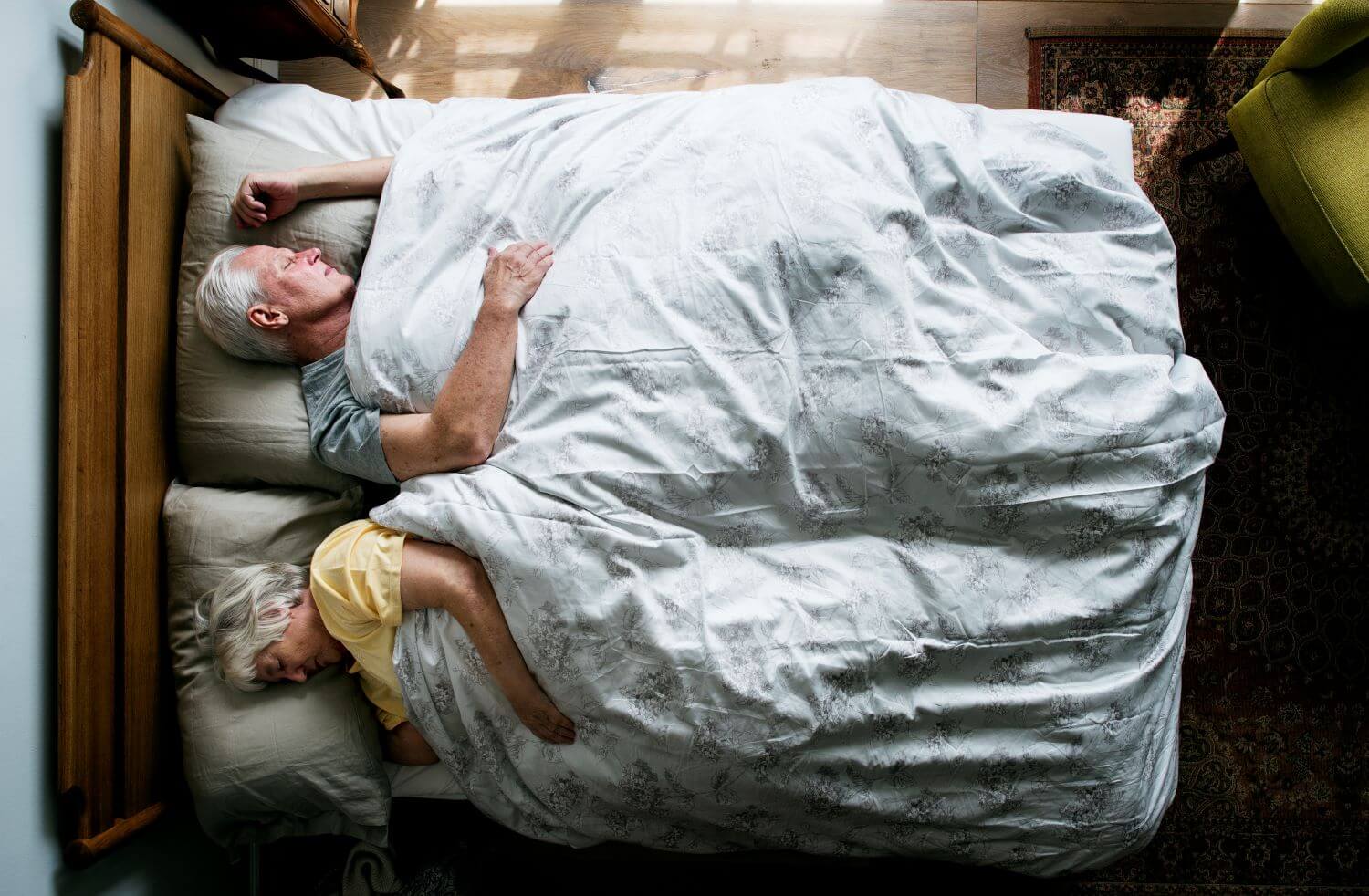
Did you know sleep patterns change as you age?
As people grow older, many experience shifts in their sleep patterns. Some of the most common changes include:
- Waking up earlier in the morning
- Feeling tired earlier in the evening
- Developing insomnia
- Waking up in the night and struggling to return to sleep
While these changes can be challenging for anyone, adding dementia into the mix can turn these relatively minor sleep disturbances into significant problems.

Dementia-Specific Sleep Challenges
In addition to typical age-related sleep issues, dementia can bring its own set of sleep complications. The most common sleep problems in those with dementia include:
- Insomnia: Trouble falling asleep, staying asleep, or getting restful sleep.
- Hypersomnia: Excessive daytime sleeping, even after a full night’s rest.
- Waking at night: Difficulty going back to sleep after waking in the middle of the night.
- Altered sleep cycles: Inconsistent sleep patterns, sometimes leading to a complete reversal of day and night.
- Behavioral changes: Increased confusion, agitation, anxiety, or even aggressiveness at night.
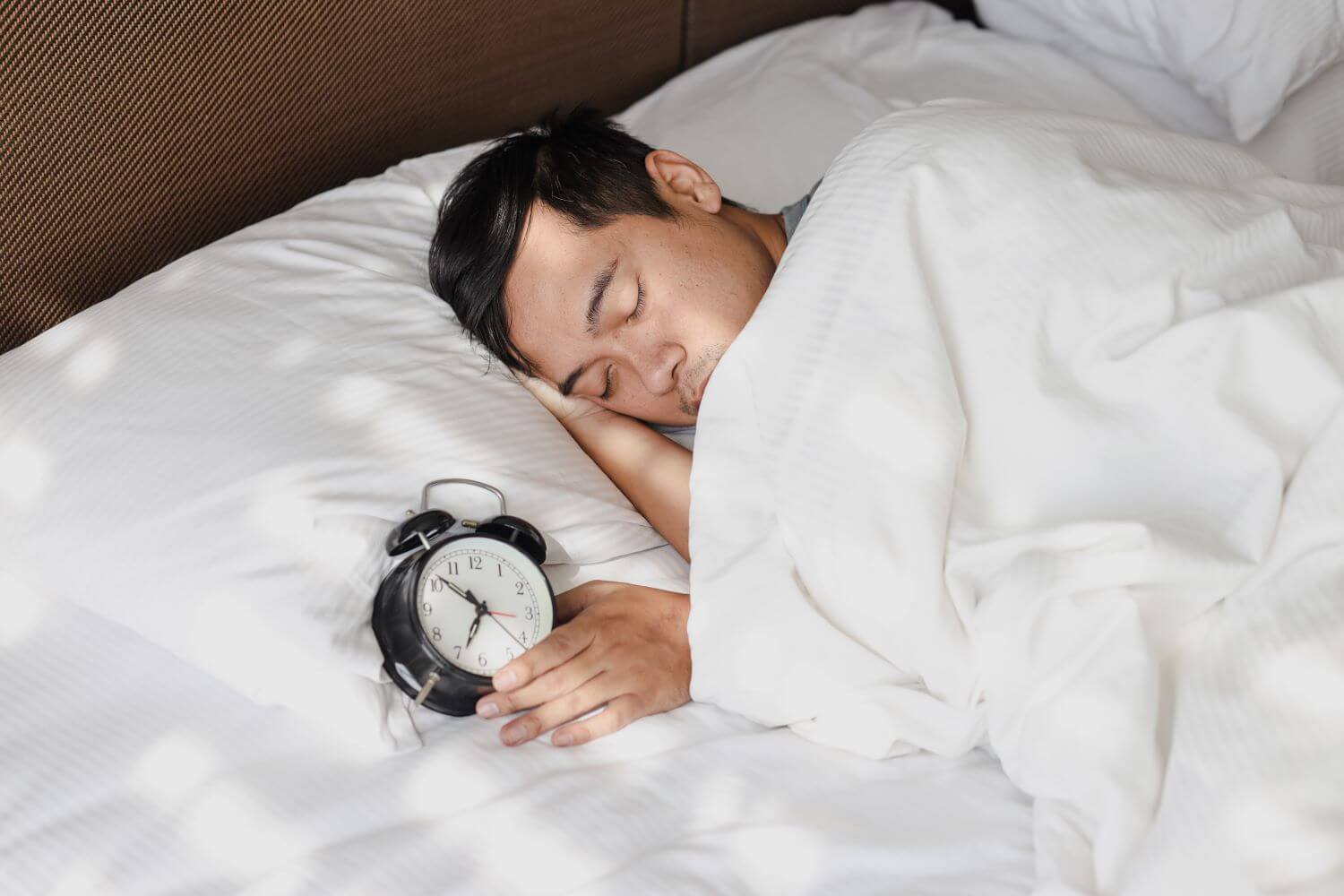
Why do these Dementia sleep problems occur?
Dementia-related changes in the brain are often the root of these sleep issues.
One key factor is the disruption of the circadian rhythm, the body’s internal clock that helps regulate sleep and wake cycles in response to light and darkness.
If dementia affects the part of the brain responsible for this clock, the body may struggle to recognize natural sleep cues.
Physical issues, like restless leg syndrome, sleep apnea, or frequent bathroom trips, can also disrupt sleep.
Environmental factors, such as room temperature and noise, may further impact sleep quality. A too-warm or too-cold room, excessive noise, or even complete silence can be unsettling.
Additionally, light is essential—not just for regulating sleep but as a source of comfort.

Helping Someone with Dementia Sleep Better at Night
Here are some helpful tips for caregivers to support better sleep:
- Encourage exercise during the day with household tasks or light activities.
- Limit naps or keep them short to promote nighttime sleepiness.
- Establish a calming bedtime routine with consistent steps, like a warm drink, soft music, and familiar routines (e.g., brushing teeth, using the toilet).
- Maximize daylight exposure by opening curtains and spending time outside to help regulate natural sleep cycles. If sunlight isn’t an option, consider bright indoor lighting.
- Avoid stimulants like coffee, tea, or alcohol in the afternoon and evening.
- Use a night light to provide a sense of security and reorient them if they wake at night.
- Keep the bathroom well-lit for easy nighttime navigation.
- Set a comfortable room temperature; a slightly cooler room often promotes better sleep.
- Limit mental stimulation in the evening, avoiding action movies or even the news, which can be overly stimulating.
- Offer comfort for physical discomforts, like Tylenol for arthritis or a soothing massage before bed.
- Consider a white noise machine to help block out household sounds.
Always talk to a doctor before using sleep medications, as some can increase confusion or cause falls in those with dementia. Over-the-counter medications may not be safe, but many caregivers find melatonin can be effective and gentle.

Nighttime Wakefulness: How to Help
Sleep problems can affect the entire household, not just the person with dementia. Waking up at night and wandering is especially challenging. If your loved one wakes in the night, here are some strategies that may help:
- Check if they’re too hot or cold and adjust blankets or room temperature.
- Limit evening fluids to reduce nighttime bathroom trips.
- Offer a bedtime snack to prevent hunger from waking them.
- Encourage a bathroom trip before bed and another during the night if needed.
- Keep clothing out of sight so they don’t think it’s time to get dressed.
- Gently remind them it’s nighttime and encourage them back to bed.
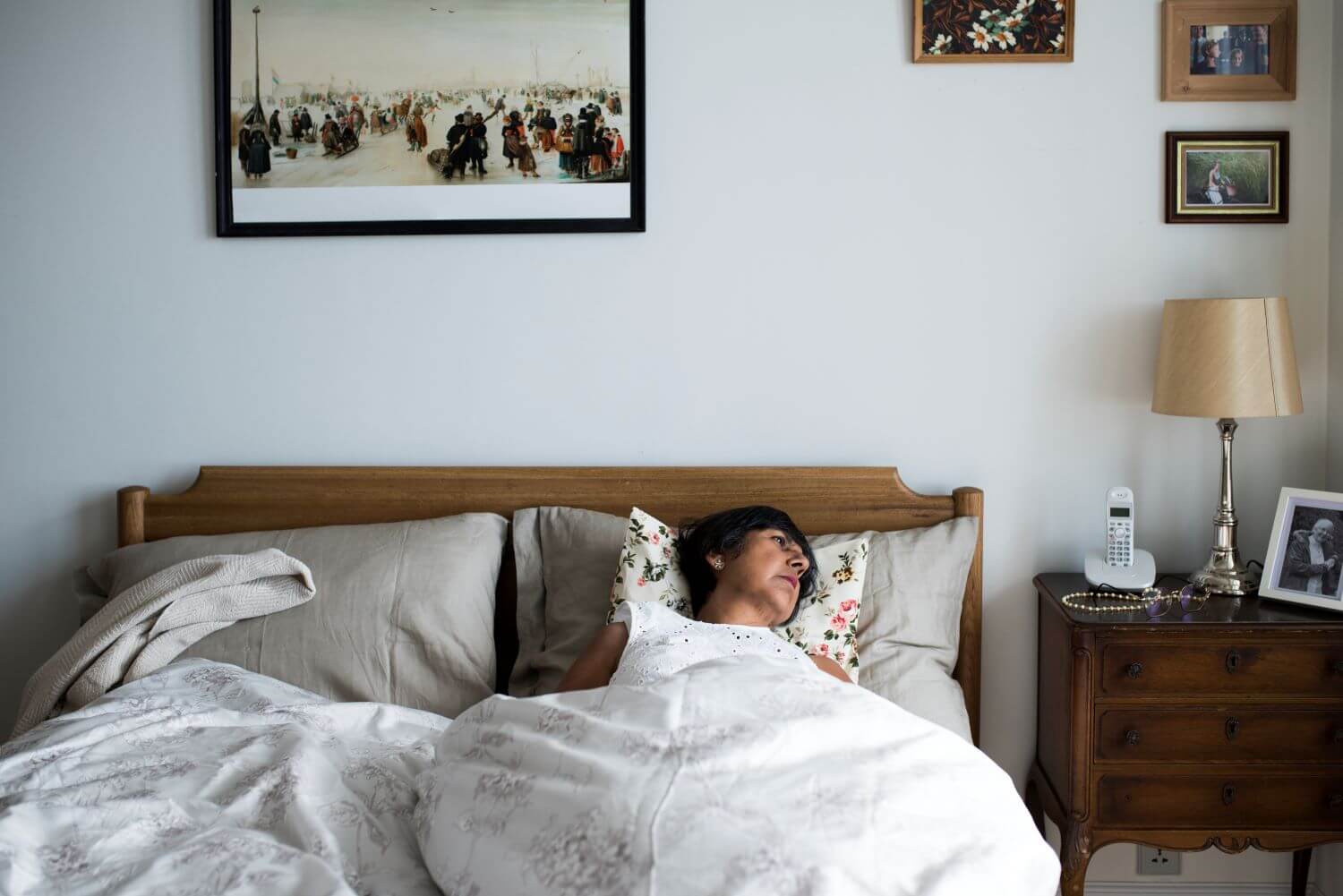
When Caregiver Sleep Deprivation Becomes a Concern
Lack of sleep can be extremely challenging for caregivers, especially if dealing with a loved one who experiences prolonged wakefulness.
Some people with dementia may even stay awake for several days at a time.
I remember one woman who would walk for three days straight, only stopping to sleep for 24 hours before starting the cycle again.
When this happens, don’t hesitate to call in reinforcements. If sleep problems persist and are severely affecting your rest, it’s time to ask for help.
Many caregivers feel reluctant to reach out, but insomnia is a serious issue that you can’t manage alone. Talk with family members or friends and arrange for someone to stay with your loved one a night or two.
Remember, if you become sleep-deprived, both you and your loved one will suffer.
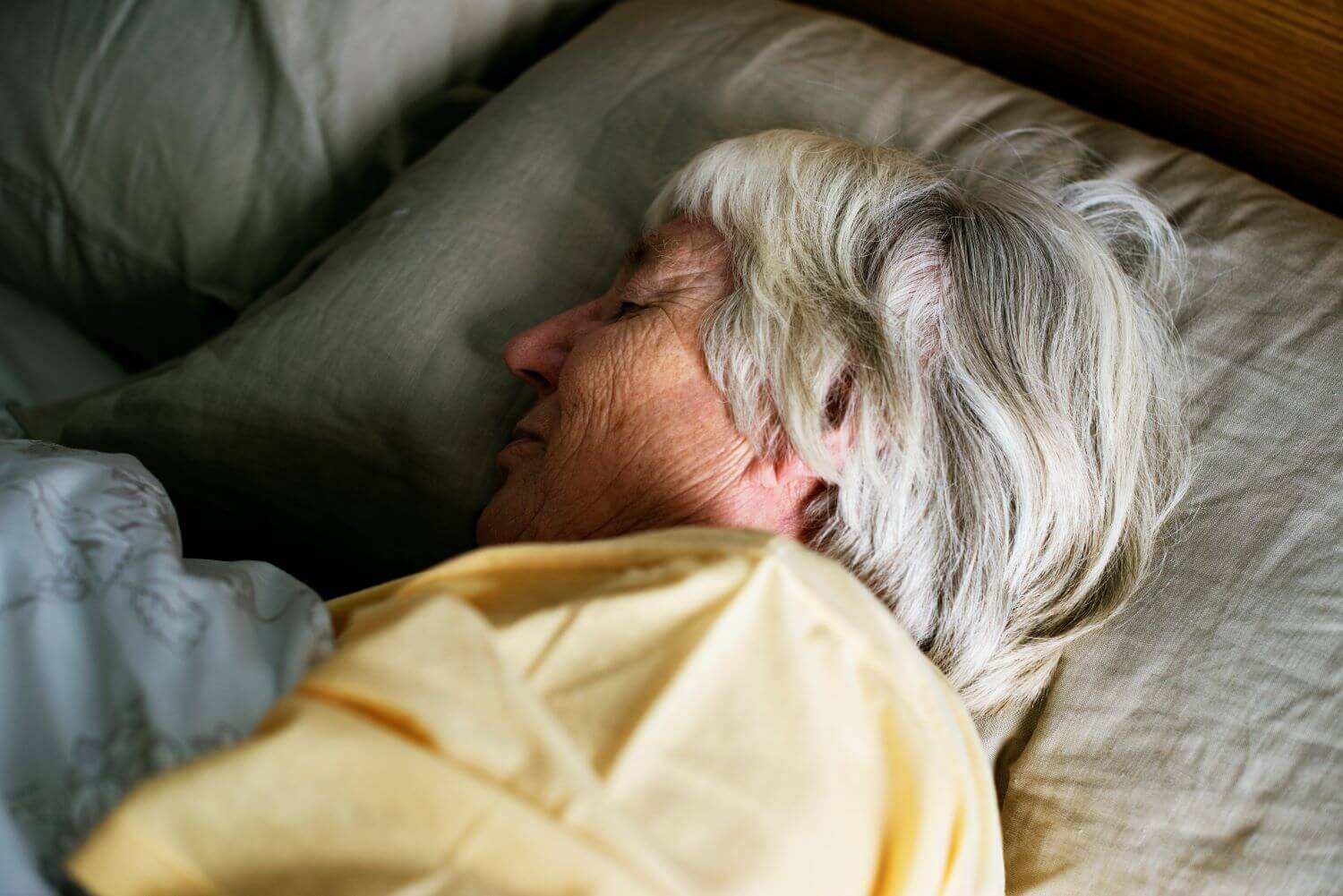
Dementia Sleep in the Late Stage
When your loved one is in the later stage of Dementia, you will find that their sleep time increases. Often they will sleep 20-22 hours the day. As a result, they become entirely dependent on the caregiver for everything, including turning and repositioning them in bed.
Repositioning is critical. Their skin will break down if they lie in the same position for too long. That skin breakdown is called a pressure injury. In the old days, we called them bed sores. This repositioning is essential to prevent pressure injuries, also known as bedsores, from developing due to prolonged immobility.
Tracking Sleep Patterns: A Key Tool for Caregivers
Tracking sleep patterns can be invaluable in managing dementia-related sleep issues.
Almost all those with dementia will experience sleep problems, so documenting what works, what doesn’t, and the changes you observe is crucial. This record can help a doctor decide if sleep medication is necessary and which type to consider.

Need Help Getting Through Long Nights?
If dementia sleep issues have you exhausted, I have a solution that might help. The phases of dementia sleep issues do pass, but identifying problems early can help you manage them more effectively. I created The Caregivers Notebook to support caregivers like you.
To solve your loved ones sleep problems, you have to get to the root of the problem! You have to find the WHY!
To find the why, you need to investigate and find what is behind the problem. You need to think who, what, when, where, and why. You need to gather the data, what led to it, when did it happen, why it happened, what did you try, what worked, and what didn’t work.

This tool helps you track your loved one’s sleep and see the big picture, rather than just day-to-day frustrations.
By identifying trends and what actually works for your loved one, you can get back to more restful nights sooner. If you don’t already have a documentation system in place, consider The Caregivers Notebook—it’s been a favorite resource for many caregivers.

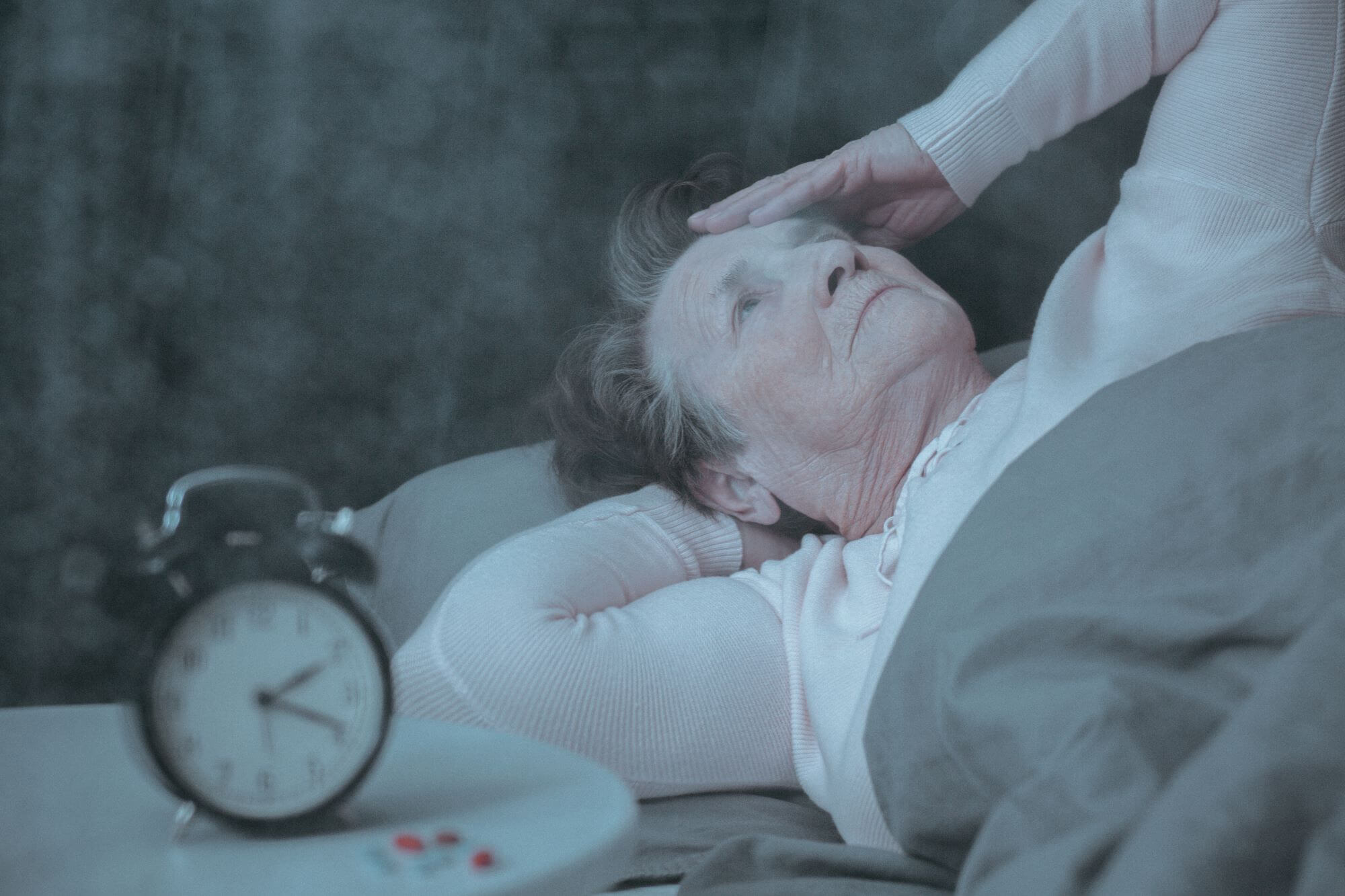







0 Comments